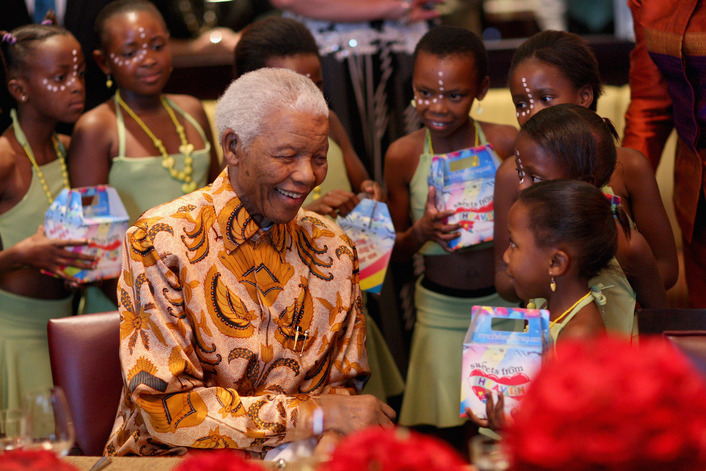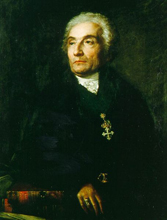|
If
you talk to a man in a language he understands, that goes to his head.
If
you talk to him in his language, that goes to his heart.
President Nelson Mandela
(The Father of South Africa [1918-2013] )

ONE:
Note To You
Thank you for taking time to read this. I
hope that when you see the benefits of this programme, and the potential
affect it can have on young minds, you will agree with me that teaching
some form of Civics, with public finance related concepts
so that students can see how the process of
modern democracy works, can easily change an entire generation around.
People in many societies around the world need to take responsibility for
what is essentially theirs.
The challenge is to break the
Us-Them mindset. We cannot have citizens of SA saying that "the
government" is responsible, or it is "their problem, not mine". No such
reality exists. As you well know any government is in place only because
the citizens put it there, and in Module One the learner is taken on a
journey from ancient Greece to modern South Africa, so that they can see
how direct democracy has been adapted so that most modern countries have a
Representative Democracy. This means, as you know, I am sure,
that the citizen "hands over the power" to elected officials. But as we also
all know, it is about money. And when citizens/students realise that it
is their money they are giving to the government, they will realise that
in fact they, themselves, own the country and the services, etc.
I was privileged to pilot the
Public Finance N5 course at Cape College in 1995. I was new, the students
had no idea what it was about, and we all treaded very lightly with each
other the first week or so. But when I suddenly realised what the
curriculum was teaching - the core essence of it - I really got excited. I
used to walk into class each day and say:
"Did you hear a siren today?"
"Yes," they would say.
"Well, it's
money out of your pockets...!"
Of course it was easy to ask
this question in downtown Cape Town - there were sirens all the time!
I used practical examples of how much things cost - such as the cost of a
prisoner is R483.00 a day
(R14,500
per month). This is money out of our pockets.
The amount
of money injected into the economy with the visit of each tourist (approx.
R30 000, besides the ticket expense to
get here). I found that when they understood how money
(their money) could be wasted, and how it could be used to make things
happen, they also got excited. It can be a wonderful exercise to ask the
students to bring examples to the classroom/lecture-hall. To find out,
themselves, what things actually cost - such as the loss of a newly
trained doctor to another country, for instance. This programme will work
only if the Facilitator - you - are really prepared, but also if the
delegate/student does most of the work!
I love the quote by President
Mandela above. It speaks to me because I realised that when students
finally understood that it was they who had both the power AND the money,
they wanted to be far more involved. They wanted to make a difference. In
fact one of my original students at Cape College went on to promote the
concept of good governance and public finance on the radio, and later
became a part-time lecturer at False Bay College.
Money talks. Always.
That's why
public finance is so practical.
When people realise that if we could halve
the
corruption in SA, it could mean a 50% increase in the
Education Budget: that talks to them.
When they learn that it costs R14,550
a month to keep a prisoner alive, and then realise that
the prisoners are
adding nothing to the economy, which means
that cost is actually much more than that, this
talks to them.
That makes them angry. And angry citizens often do something! In
the past severe civil disobedience meant burning government buildings,
vehicles, etc. People did NOT realise that it was costing them
- they still lived in an Us-Them world paradigm which made them
believe that the government had to pay.
It is critical for this type of thinking to stop. And this can only be
done through information.
And this is the purpose of
education - to educate, as we know means to draw meaning, understanding, reaction
out of the learner. To get them to "see" a truth from within
themselves, by providing them with the correct information. I believe it
is the only way to turn South Africa around to be a truly great country.
To make service delivery meaningful, and to make the learner take
responsibility: to know that if they communicate and talk to their
elected officials, these officials are obliged to listen.
I think the need for Civics
Education in South Africa is critical.
I believe it should be
introduced in schools as an essential subject offering.
And this programme is a start.
I hope to introduce it into as many schools as possible, and for it to be
a launching pad to convince education authorities that a broader Civics
curriculum belongs both in the primary and high schools.
I apologise for the fact that
the videos below, as well as many others in this programme were produced
outside of SA. I hope you will join me in looking forward to the day when
we, together, will produce our own programmes that will help South
Africans become better, more efficient, and happier citizens of our
wonderful country.
They are excellent, though, and
I do encourage you to watch them:
Richard Dreyfuss, Academy Award winner and star of American
Graffiti, Jaws,
The Goodbye Girl & Mr Holland's Opus,
reaches
an interesting conclusion about a country
where Civics teaching is neglected: that it is self-destructive. He talks
of America as being a "political miracle" and that the only "ones who
don't know this are our (their) children."
I think this is also true of South Africa: it is a political miracle. But
our school going generation of kids are not taught how to cherish this,
and how to work effectively within this framework. Civics should be doing
the job. And this online training course goes some way towards assisting
with this...
TWO:
Goals
-
to make people aware of the history
and purpose of modern democracy;
-
to empower each person so that they will go
into their communities and empower others;
-
to allow people to reach an understanding of the
importance of their vote, and participation in their community, at local
government as well as national;
-
to engender a sense of not only responsibility
but also excitement at being vital members of a modern democratic
system;
-
to show people how to take part-ownership of
public facilities, systems and structures that their votes and money have
helped build.
THREE:
Methodology & Objectives
-
use the
student's own experience to illustrate a point: allow
as much as possible for them to present their own examples from their
own life-experience.
When
illustrating the cost of something, such as the cost of keeping a
prisoner alive (approxz R120,000 a year) - ask what they could do with that money
in their own community. This brings home the real cost. And motivates
them to perhaps do something about it.
-
use
the bold questions in the modules, also in italics, as opportunities for
discussion, discovery and an opportunity to hear the different views of
all delegates.
-
use positive reinforcement, such as thanking
students for their contribution, to instil a sense of their being
important to the process of discovery, and their eventual realisation of
how important their person, their vote and their tax contributions are.
-
as
far as possible debate both sides of any argument, an ethical situation,
or a system of service provision. This is especially so in the following
sections:
-
Module Three -
Summary of Services,
and
Sources Of Income,
-
Module Two - Democratic Principles for Public Financial Control.
FOUR:
Content & Outcomes
|
Section |
Notes to You the
Faciliator... |
| |
|
|
Introduction
Contract
Are government issues my
issues?
|
The
Contract is for both when the student is working alone and in a group.
In many cases I have asked them to debate, think of an issue or make a
list or illustration - the contract makes an attempt to persuade them
not to scroll down for the answers, but to come to some conclusion
before they do so. It also asks them, particularly when are in a
group, to respect the views of other participants, making sure they
understand that people come from many different cultures and walks of
life.
The second part is a
challenge and the purpose is to entice the student into realising that
in fact what the government does or decides is very much their
business. I ask a few questions that hopefully prompt this
realisation.
|
| |
PLEASE NOTE THAT ALL QUESTIONS ARE
PRESENTED/ASKED IN BLACK, ITALICISED FONT. |
|
Module 1
What
governments believe |
Various
ideologies are investigated. NR: the video is well worth watching.
The main purpose here is to show how difficult it
might be to adopt one ideology over another. Students are encouraged
to "design" their own state, having seen the origins of
both the LAISSEZ-FAIRE
and the Economic Welfare state. They are also encouraged to accept
that governments might lean one way or the other, depending on service
delivery and needs (Module Three).
|
| |
|
|
Module 2
Democracy is it! |
The origins of democracy
in Greece, and how through the ages various cultures, and nation have
used democratic principles to demand change - The French Revolution,
The Boston Tea party, and the Original Magna Carta.
Students are encouraged to write down principles they feel they might
want to see in a fully functioning democracy. The excellent video,
Growing Participation & Deliberative Democracy will give them some
idea of how nations try to incorporate the needs of society in their
governing principles.
Here, for the first time, they are encouraged NOT to scroll down until
their list is finished. The Facilitator will have to encourage them
not to do so: it is important to realise that the course if not about
knowing more than another delegate - it is about discovery.
True Signposts of Democracy follows - students should be
encouraged to give their own examples, or to say where their
government fails in this regard. You will have to decide how long you
wish to spend on this section as experience has shown me that
delegates have interesting life-experiences to share at this point. On
the other hand one does not want to labour a point or use too many
examples. One of the most important sub-sections is the last: Citizen
Participation - this should open the door to Responsibility and
part-ownership which is primarily what this training programme wishes
to encourage in each delegate. It also leads them to realise why we
have a Participatory democracy, rather than a direct one -
simply because each citizen does not have the time to take part in
every decision. Participatory democracy, of course, opens the door to
corruption, as someone else takes the citizen's power (their vote) and
their money and often (not always) makes decisions behind closed doors. How can a society
avoid this, or make sure their elected officials act according to
their mandate only? - this is the challenge facing all democracies and
citizens in every country around the world. Students often volunteer
interesting ideas.
They are challenged next to "draw" an illustration showing various
elements within a democracy: Ideology, citizens, elected officials,
constitution, power...
Try to encourage them to do so without clicking on the link to see the
illustration I have made. Praise them for the their efforts.
The issue of Accountability and Public Accountability is next. Many
students will have examples within their community, or nationally.
This often leads to heated debate and interesting input. Encourage
this. There is also a video that concerns this issue: Ushering In The
Age of Accountability.
They are then asked to list a few Democratic Financial Principles. The
entire course now focuses mainly on MONEY. Incorporating Public
Accountability, for instance - what do they see as important within a
democracy when it comes to money, finances, taxes, public spending,
officials, service delivery, etc?
Once again, do not let them scroll
down before they have compiled a list.
The table with the Principles once again offers much opportunity for
debate. I have introduced the column: Ethical Situation & Debate -
over to you!
You might want to ignore some of the situations, and introduce your
own. Even more exciting is to allow the student to think of their own
situational dilemma!
This module ends with the challenge to realise that the government is
us - we are the government! Students should realise that unless they
take responsibility, the government they elect could run the risk of
acting alone and could ignore the needs of their community.
|
| |
PLEASE NOTE THAT ALL QUESTIONS ARE PRESENTED/ASKED IN BLACK,
ITALICISED FONT. |
|
Module 3
So what does a government do? |
Here we see that
governments try to use their ideology and the principles of modern
democracy to satisfy service delivery. The video, You And Public
Finance Management, tries to show that any government has in income
and expenditure account, just as any family.
The
questions are designed to challenge, and also make them realise that
they should be taking part. They are asked to list three Types of
Services - once again encourage them not to scroll down until they
have made a list.
Order and Protection and then Social Welfare are presented. They are
encouraged to make a list of the Social Welfare categories - once
again please ask them not to scroll down until they have made a list,
or offered examples in the class. I
encourage them, once again, to think of a third type of service.
As
fitting the theme of the course, I am wanting to focus on the
financial aspect.
The Summary Of Services provide an excellent opportunity for research.
How much does it cost the government (them) to train a doctor. What
does Tourism add to the GDP? Would it be cost effective to close down
most prisons - is it worth the R60 000 p.a. to keep each prisoner alive
- how could this be better controlled financially? There is much
opportunity for debate here.
The video depicting Pravan Gorhan gives some insight into the present
government's ideology and intentions; it might also help the student
to see how difficult service delivery can be.
The Sources of Income for the national government can also give
rise to debate, and some interesting ideas. I ask them the qquestion,
If your present government did away with Personal Income Tax, where
would you suggest they get the funds from...?
I am hoping they might offer some
interesting ideas, such as the abolition of personal tax, and perhaps
a 35% VAT - this of course has huge advantages and disadvantages.
The Sources of Income are then listed; they should know that rates,
etc. change from year to year.
This leads to The Budget - the video explains how this process might
take place.
Finally I present the illustration I asked them to do in Module Two,
and end with the challenge that they should take part-ownership of
every public facility around them. They should realise the mantra of
this course - that if something goes wrong, it's money out of their
pockets! If they can help create a more accountable, effective local
or national government, the money will start flowing back into their
pockets.
In the end it is all about money and delivery. Making sure these work
effectively can make the difference between a Zimbabwe, and a model
country. I believe that knowledge of such processes can turn a whole
generation around to make that difference!
And YOU can be a part of this.
Thank you for your participation and input.
Please email me with ANY suggestions or requests:
mklerck@gmail.com

|
| |
|
Please be aware that although many of the
concepts in the programme may be familiar to
you, this entire programme was test-driven
by an Economics Professor who said there was
much he was able to learn.
As the Facilitator, you
need to be well versed and well prepared before going into "the lion's
den." You will be surprised by the insight and observations of some of
your students.
Be prepared...; be rewarded.
I do wish you all the best
in your mission to share this programme in your classroom or lecture hall.
I truly
believe that only when we take part-ownership of our country, will we
fully realise our purpose in South Africa - to help our local and national
governments work as efficiently and as effectively as possible with the most effective
finance applications that work for everyone. This task is in the hands of
every voter, tax-payer and citizen - it is your job to make them realise
this.
Remember,
you are revealing essential truths to the very people who will one day be
responsible for all that South Africa has to give its citizens, and the world in the future...; they
are in your hands.
Good luck - please feel
free to email me at any time with questions or ideas and especially with
improvements!
Click on my photograph to
contact me.
I am always available.
Introduction
Module One
Module Two
Module Three
|


